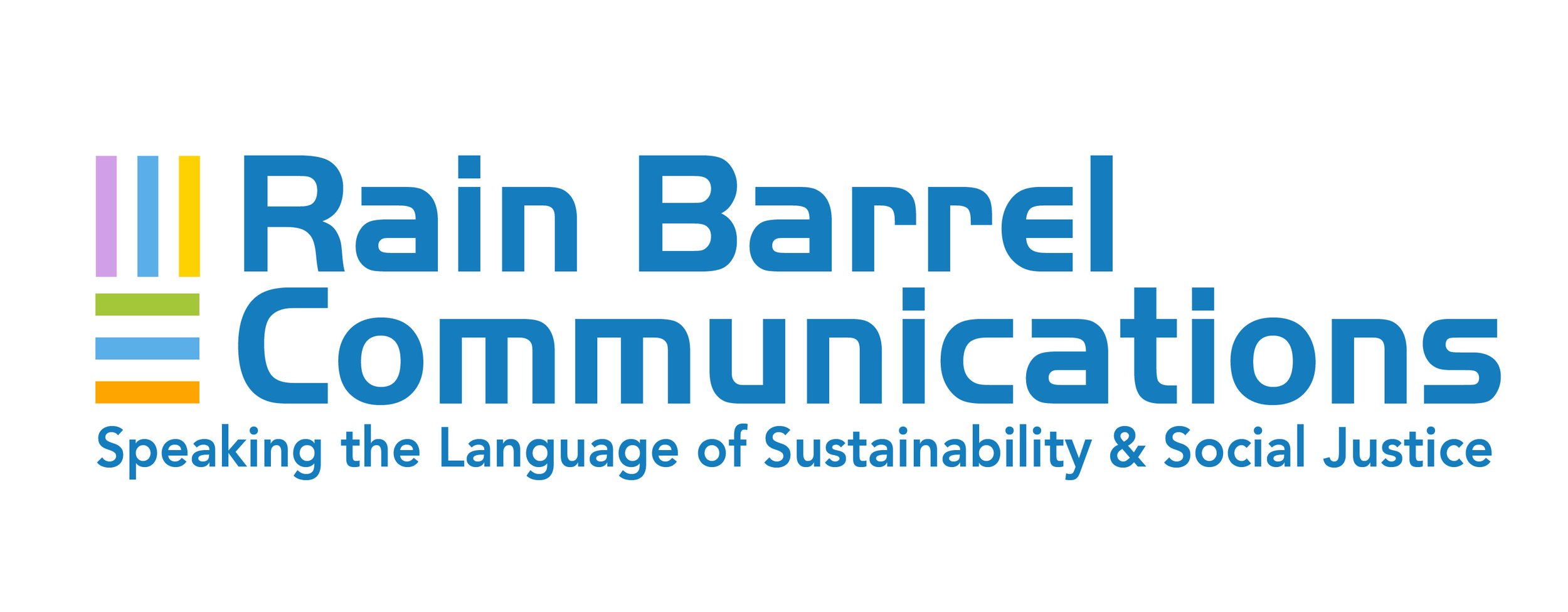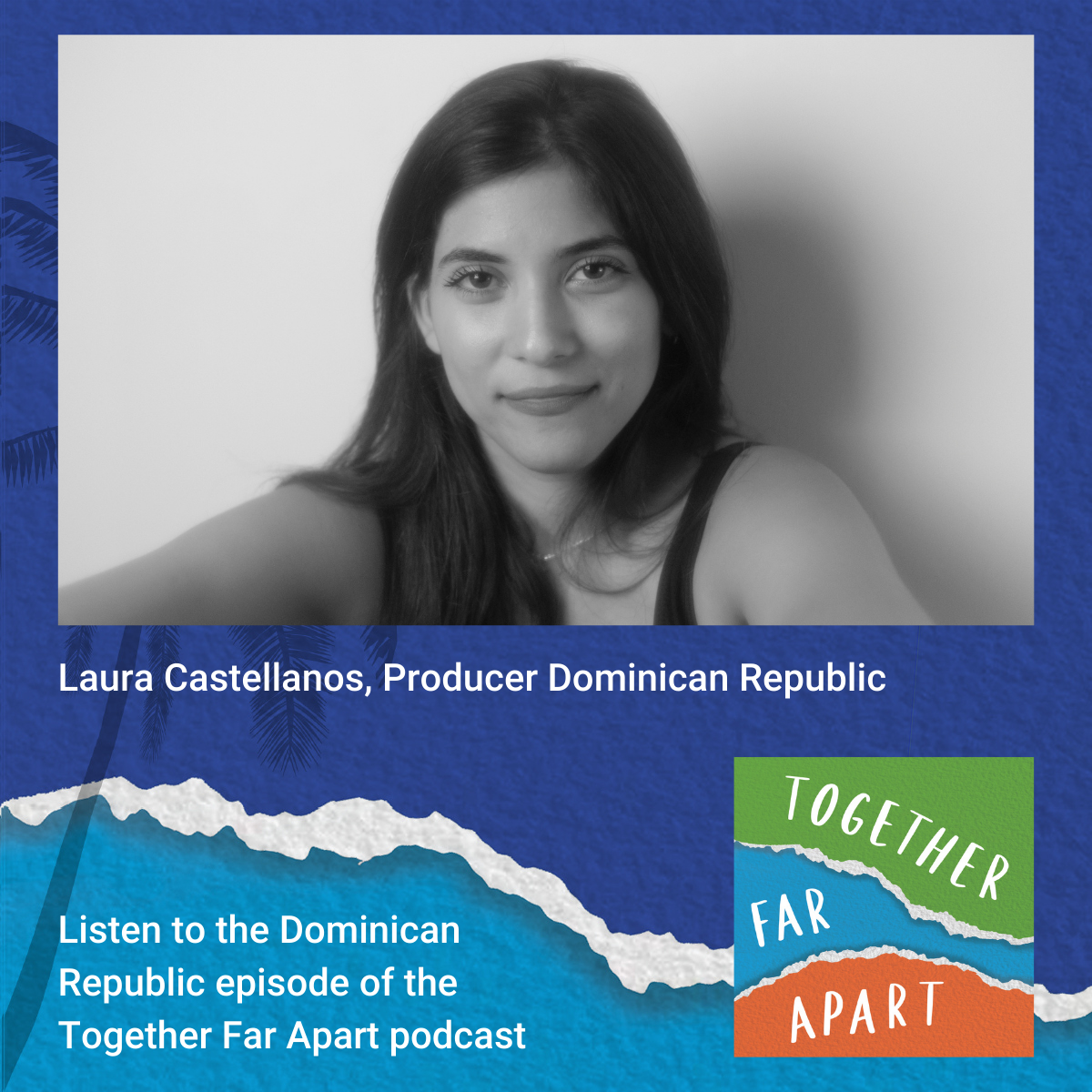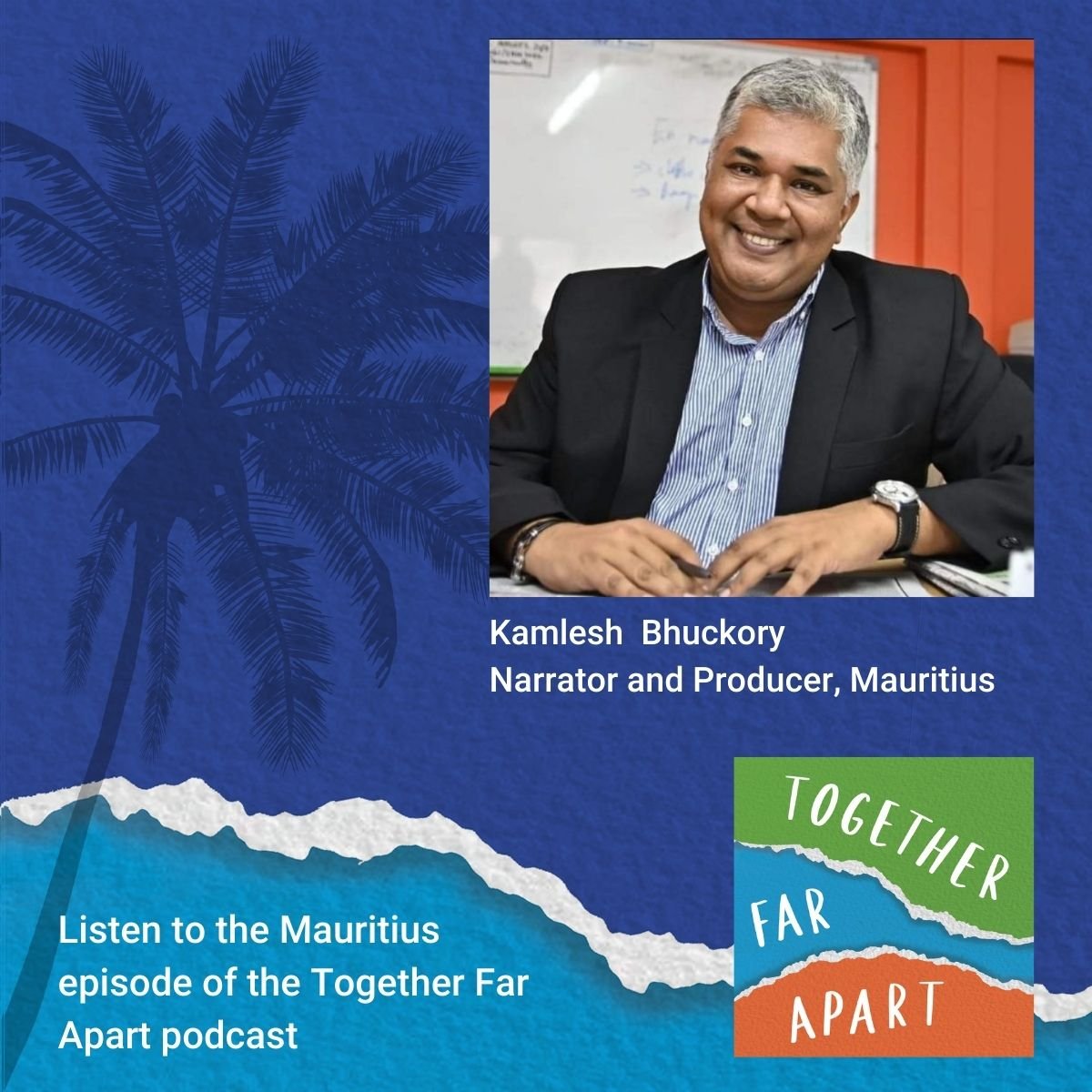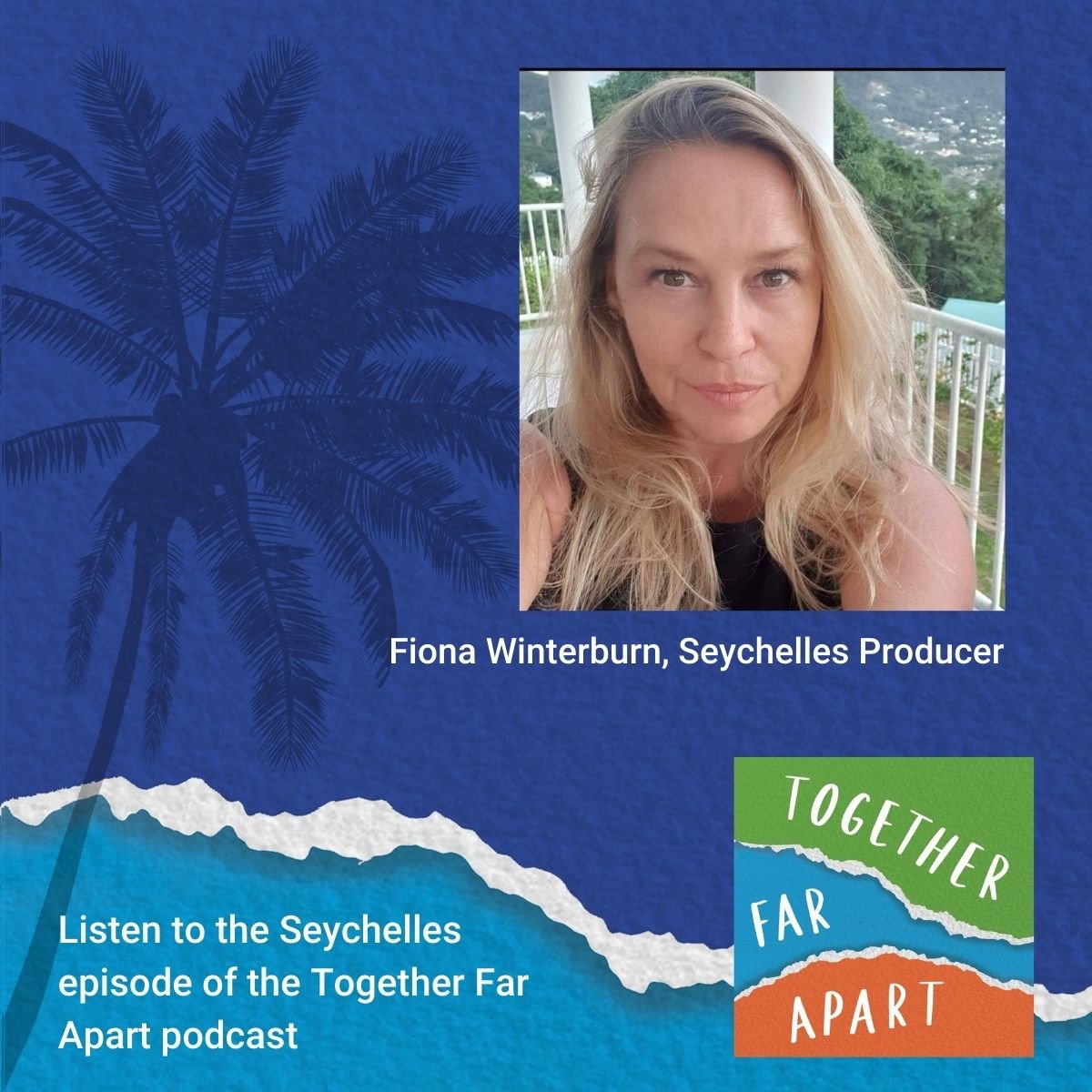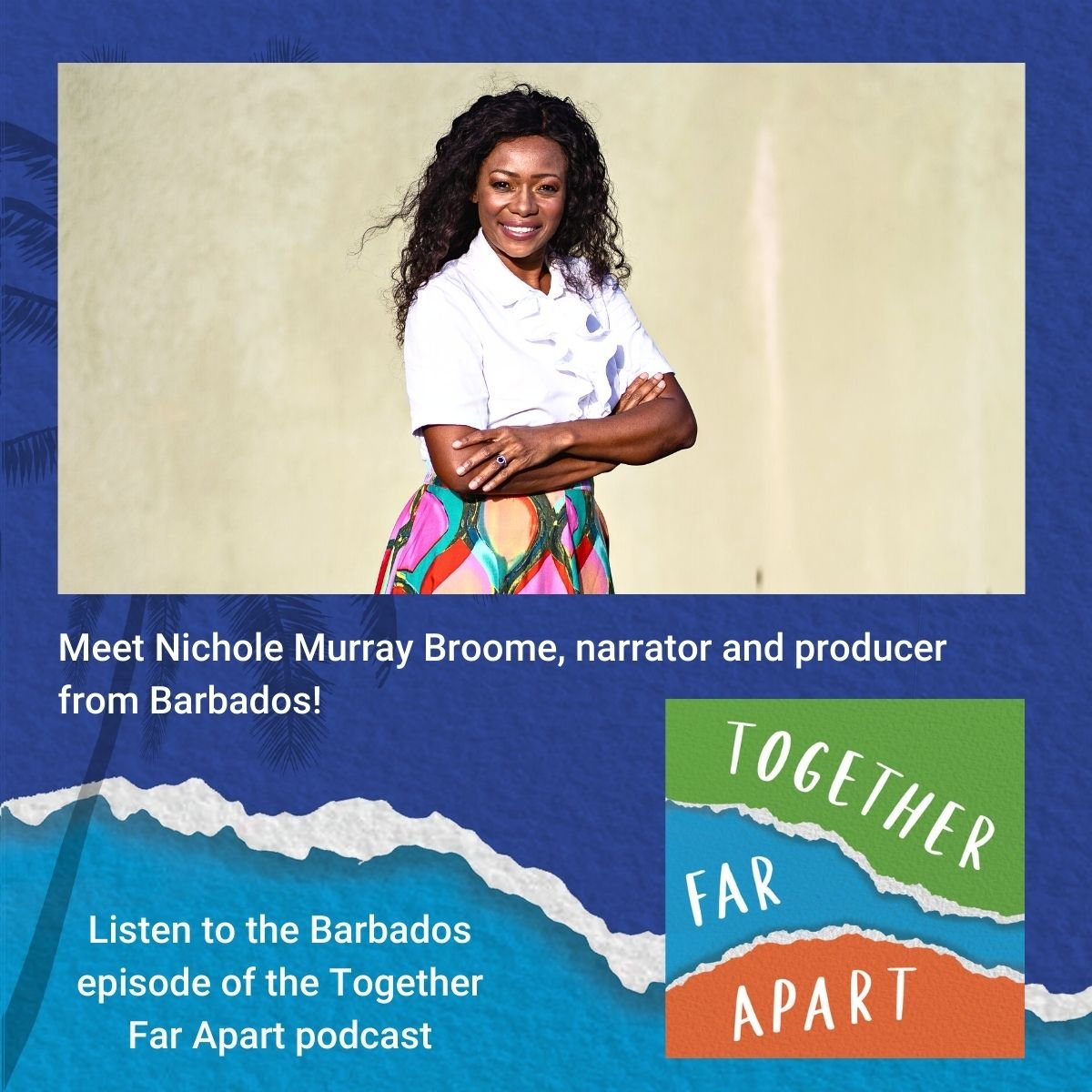Together Far Apart: A Podcast About Local Solutions to Global Challenges
Stacey and Zoe are second-year business students who co-narrated the first episode on seagrass conservation in the Seychelles. Photo by Seycreative / 2022
There is something very special about podcasts, which may explain why they are becoming so popular all over the world. They are intimate, portable, easy to access, available on demand and relatively low cost to produce compared to a documentary film or a live broadcast. So, it is not surprising that an increasing number of public institutions and private companies are joining independent producers in creating content aligned with their brand.
But for a global institution like the United Nations, whose mission is to advance peace and security through a variety of actions embodied in the sustainable development goals, distilling big and ambitious ideas into compelling sound bites can be challenging. And let’s face it, people all over the world are fatigued by the COVID-19 pandemic and the many daunting challenges that humanity is currently facing. They want to hear uplifting and inspiring stories.
This is what the Together Far Apart podcast is all about. Rain Barrel is proud to have partnered with the United Nations Office for the Most Vulnerable States (UN-OHRLLS) to create a podcast about the shared challenges of communities that may be far apart on the globe but are united in their hopes and ambitions for a brighter future. The podcast, which officially launches on April 12, has been produced over a four-month period. The first season focuses on Small Island Developing States (SIDS), one of three portfolio areas of UN-OHRLLS.
Local producers. Local voices
Finding the right local producers took time. The podcasting industry is evolving at a different pace around the world and people’s experience with this medium varies a great deal. While 78% of the U.S. population is now familiar with the term podcasting, this is not the case in countries like South Sudan or the Island Nation of Comoros. Although audio as a form of communication has existed for more than a century, its portability and shareability is only a few decades old.
Our goal was to identify community journalists, preferably with radio experience in a cohort of SIDS. Most importantly, we were looking for content creators who represented their communities and were eager to share hyperlocal stories focused on homegrown solutions to global challenges. We sought out storytellers who believed in this audio project as much as we did. We invited them to think out of the box and to look for untold stories that inspired them. For some of the producers, like Fiona Winterburn in Seychelles, this was the first time a podcast was being produced on the island. For Kamlesh Bhuckory, business reporter and radio columnist in Mauritius, this was the first podcast project he embarked on.
Co-creating from a distance.
A world of possibilities unfolded in front of our eyes. The local production teams identified potential story ideas and, with Rain Barrel’s support, narrowed them down to a few concepts. Our role was to empower local producers to find their voices and trust their guts. We discussed the pros and cons of each story, potential characters, the sounds needed to create a scene, and original music that spoke about a place and a topic. We cheered them on every step of the way.
We witnessed the local producers’ creative process and supported them throughout the inevitable highs and lows. Working alongside them across time zones, we heard about how new Covid-19 variants impacted their production, the hurdles they had to jump to secure an interview with a government official amidst a holiday season, and the impossibility of travel due to a hurricane.
We challenged local producers to think about the impact of their stories not only for their Island Nations but for a global audience. They understood their role as both producers and characters in shaping the narratives of their Island’s response to global challenges and embraced the task wholeheartedly. After each round of feedback, they perfected their script and added new sound bites.
Laura Bogaert and José-Paliza, Co-Founders of Zona Bici, Santo Domingo
Stories about innovation and resilience.
The aggregate population of all the Small Island Developing States—or SIDS—is 65 million, slightly less than 1% of the world’s population. People living in SIDS face unique social, economic, and environmental challenges. These include their remote geography, susceptibility to natural disasters, vulnerability to external shocks, and dependency on international markets due to small populations and limited resources. Rising sea levels pose an existential threat to many SIDS.
“Each of the stories in Together Far Apart are not your typical podcasting topics, and I think that’s what makes this series so unique. The listener will leave feeling inspired as well as having learned something new. It is our hope that the solutions brought forward by these islands can be translated to other communities, big and small, island or not, around the globe.” says Kathryn Cleary, Assistant Producer of the series.
The first season of the Together Far Apart podcast delves into issues ranging from seagrass conservation in Seychelles to renewable energy in Mauritius, promoting sustainable transport in the Dominican Republic, and the Flying Fish as a symbol of national identity in Barbados. Each episode whisks the listener to a different island community and explores a particular set of challenges through interviews and analysis but also celebrates lives through sound and music.
Jeffrey Blenman, a fish vendor in Barbados holds a flying fish, a national identity symbol for this Small Island Developing Nation
“The show will appeal not only to people interested in global affairs, but also visitors to island nations, social and environmental activists, business-people, and anyone who cherishes a good story,” says Stacy Loopoosamy, a second-year business student from Seychelles who co-narrated the first episode on seagrass conservation in the Seychelles.
Each episode highlights the power that ordinary people have in spurring transformative social change. “The stories that came out of these islands were really surprising, and in a good way. They show how local solutions are rooted in social and behavior change at the community level, more so than actions driven exclusively by large amounts of money, foreign investment and policy changes,” adds Cleary.
Tune in and share.
The Together Far Apart podcast is timely. In many ways, the Covid-19 pandemic has brought the world closer together. Pandemic lockdowns and prolonged social distancing have forced people to spend more time at home and online, but also fuelled a desire to connect and relate to others amidst a collective trauma. The podcasting industry, which was on the rise before 2020, has expanded during the pandemic as listening habits changed and more people discovered the intimacy and variety that podcasting as a medium offers.
People are yearning for uplifting stories that help us connect as human beings. So, what are you waiting for? Subscribe, listen, and share each new episode of the Together Far Apart podcast with your network. Remember to also leave a review on the app where you download your podcasts. Our local producers will appreciate it and it will help others discover the show and find strength in the resilience of people living far apart but united in their hopes for a brighter future.
